Best menopause supplements for relieving symptoms
We've tested the best menopause supplements to help you choose the right one for your symptoms
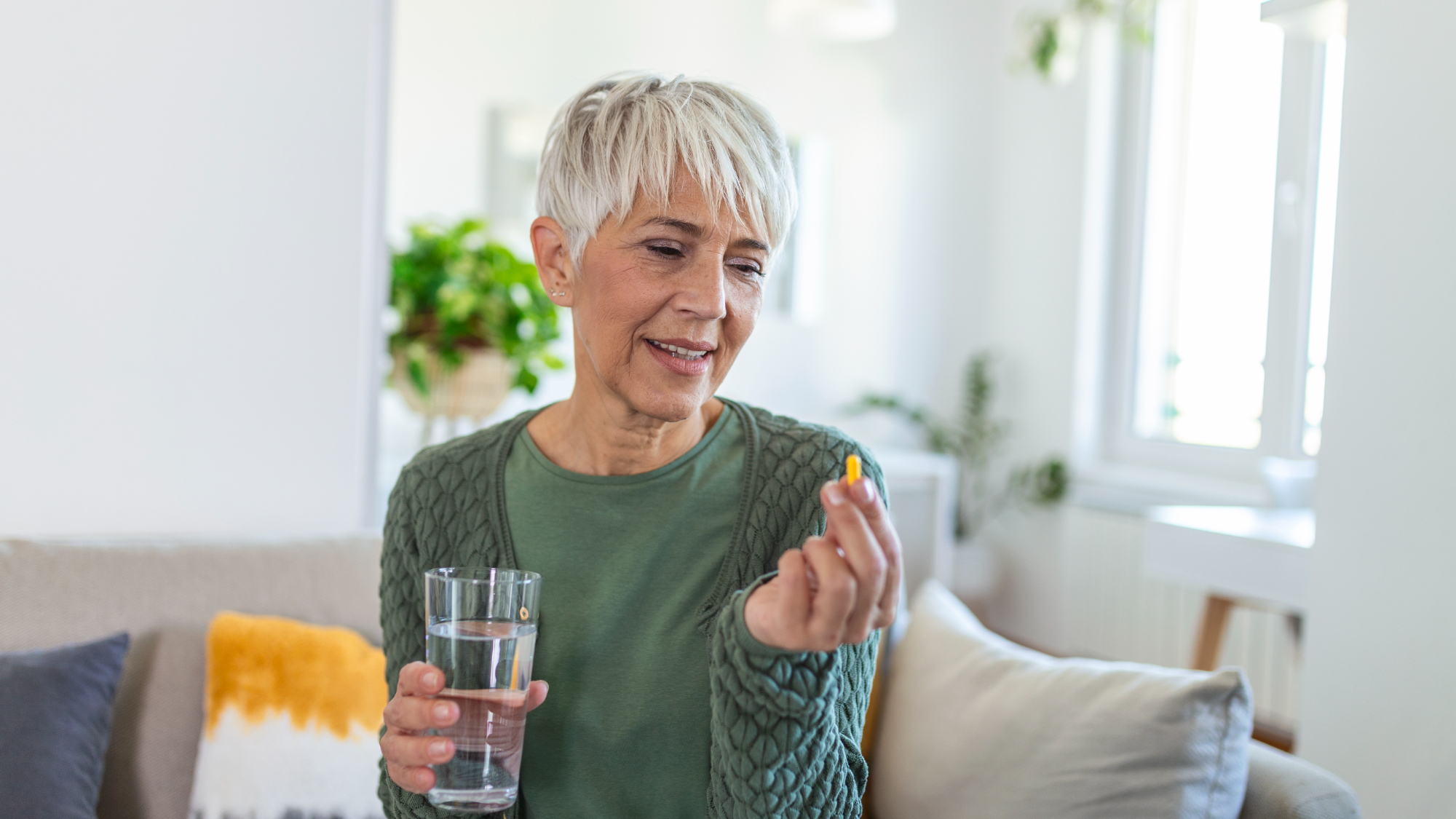
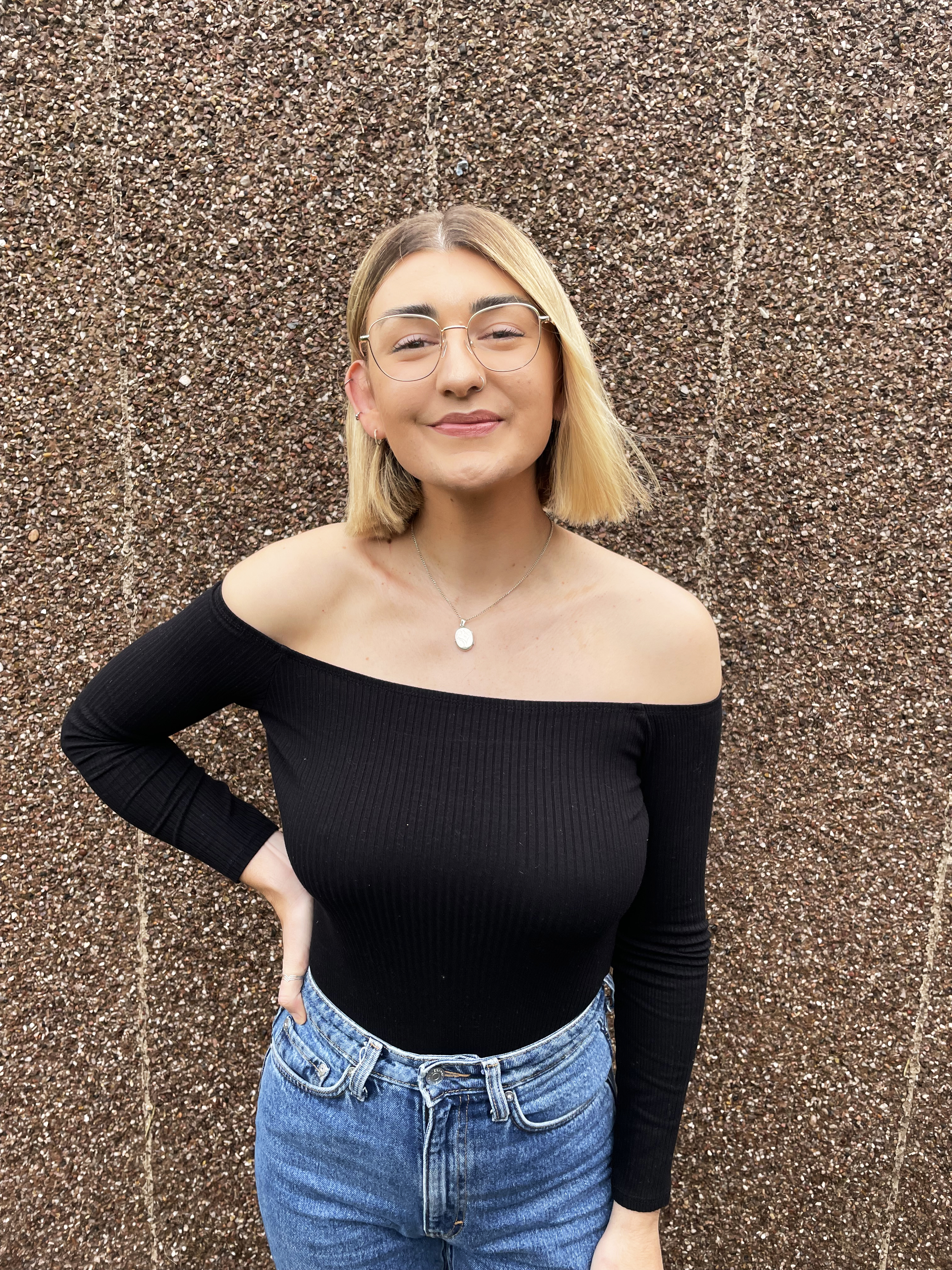
Lou Mudge
The best menopause supplements can help reduce your symptoms, making it easier to get on with your day. Whether you're experiencing night sweats, extreme fatigue, or mood swings, these capsules can help.
But there are many options out there, so we've tested a range of menopause supplements to help you find one that is easy to swallow, doesn't taste awful, and you can make a regular part of your routine.
Not everyone will experience the same menopause symptoms, so we've also included several supplements aimed at specific symptoms across a range of budgets and dietary requirements.
However, we recommend talking to a doctor or medical professional before adding any of the best menopause supplements to your diet, especially if you're undergoing Hormone Replacement Therapy (HRT).
The best menopause supplements you can buy right now
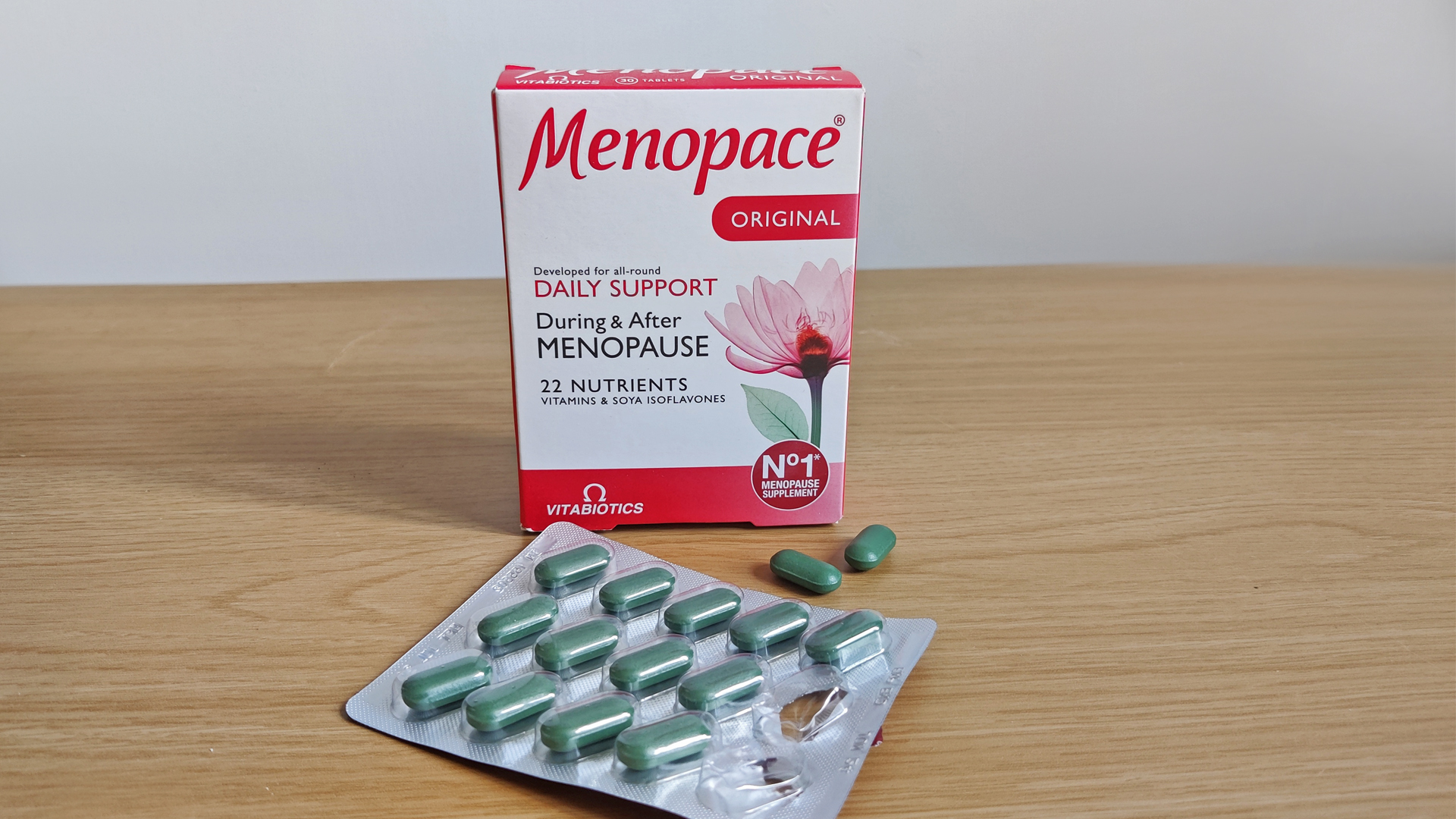
1. Vitabiotics Menopace
Specifications
Reasons to buy
Reasons to avoid
From Vitabiotics’ popular range of affordable multivitamins, Menopace emphasizes some of the nutrients that matter most at this time of life. In fact, it contains a total of 22 nutrients, including vitamin D and magnesium, which are important for keeping bones healthy and strong as estrogen levels fall. It also contains vitamin B6 to help regulate hormonal activity, and B12 for energy release.
Where this product differs from a standard multivitamin is the additional dose of soy isoflavones. These are plant compounds that mimic the effect of estrogen by binding to estrogen receptors in the body, helping to manage symptoms such as hot flushes and night sweats.
But be careful supplementing with isoflavones if you’re taking blood-thinning medication, diabetic medication, or HRT, as it may lead to negative interactions. Menopace may also be unsuitable for anyone with an estrogen-sensitive issue such as endometriosis, so make sure you consult a doctor before taking them.
This also isn’t the supplement for you if you’re looking for the benefits of medicinal herbs, such as black cohosh. However, if you’re looking to support a range of different menopause symptoms, this all-round multivitamin provides a combination of the main nutrients you need in one pill.
Note, the capsule is on the larger side, but it's got a smooth coating that makes it relatively easy to swallow. The capsules are also packaged individually, in a similar way to OTC medication. This seemed a bit unusual, but actually we found it helped us keep track of whether we'd taken the multivitamin.
If you want a bit of insurance to top up your balanced diet at midlife, Menopace is a great choice. As it’s a multivitamin, though, be careful when taking it alongside other vitamins; more is not necessarily better when you’re dealing with concentrated doses of a nutrient.
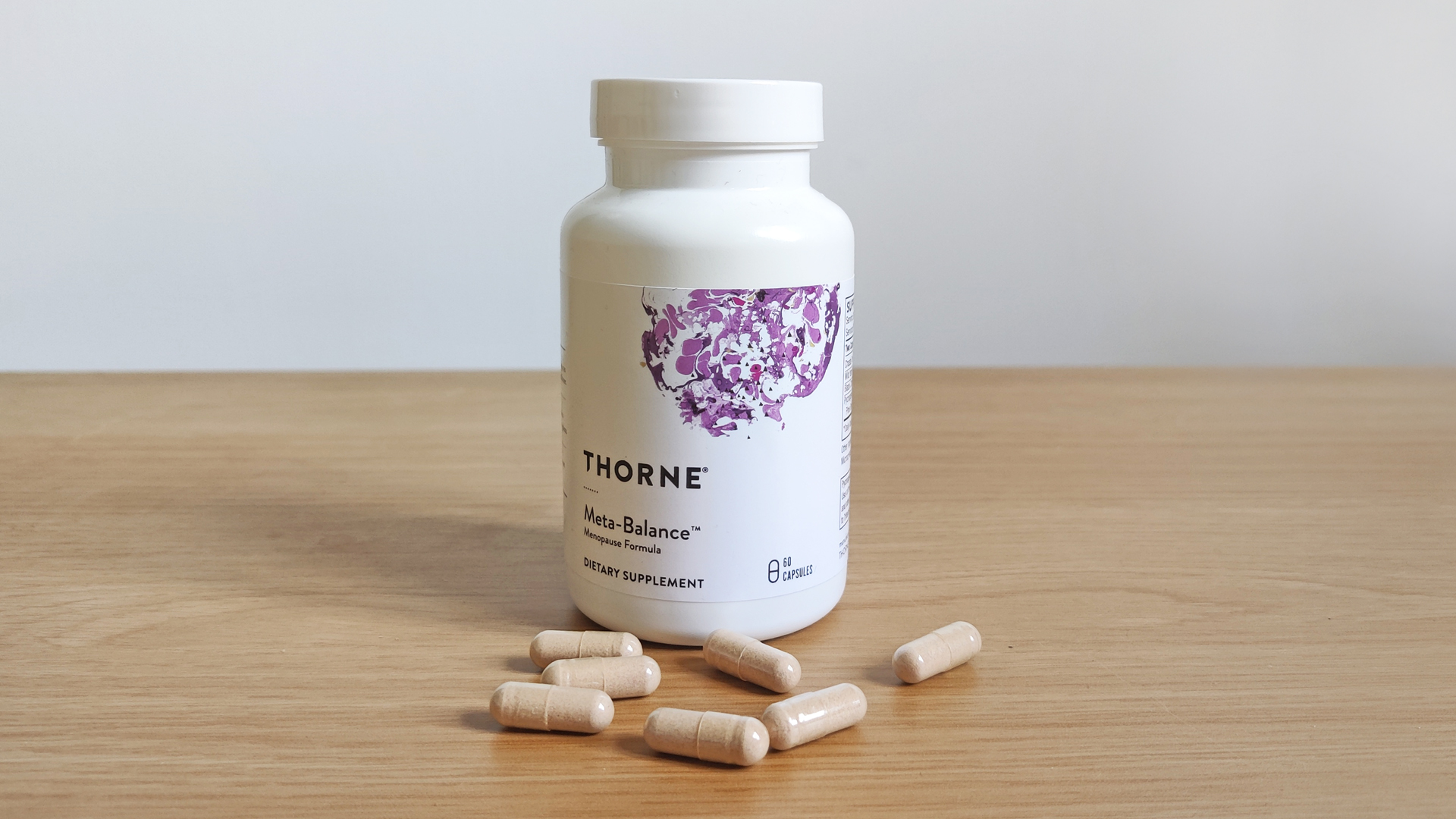
2. Thorne Meta-Balance
Specifications
Reasons to buy
Reasons to avoid
Ayurveda is the traditional Indian medical system, working with native plants to bring balance back to the body. This supplement from trusted company Thorne is based on shatavari, an adaptogenic herb considered a tonic for the female reproductive system.
Although it’s been in traditional use throughout the ages, like many medicinal herbs, shatavari hasn’t been studied extensively, though study published in the Journal of Herbal Medicine did suggest it may help ease hot flushes and night sweats.
This nourishing supplement also contains sage, known to help with vasomotor symptoms, anti-inflammatory turmeric, and B vitamins, important for energy and mood. With all-organic ingredients, it’s suitable for vegans and has fans swearing it’s helped where other products haven’t.
We love the sleek, minimalistic packaging with light purple accents. The capsules themselves are on the smaller side and have a smooth coating, so they are easy to swallow.
However, we found it disappointing that the capsules only take up half the container. This seemed a waste of packaging, as the unit could easily be half the size, especially as it is made from plastic, not glass.
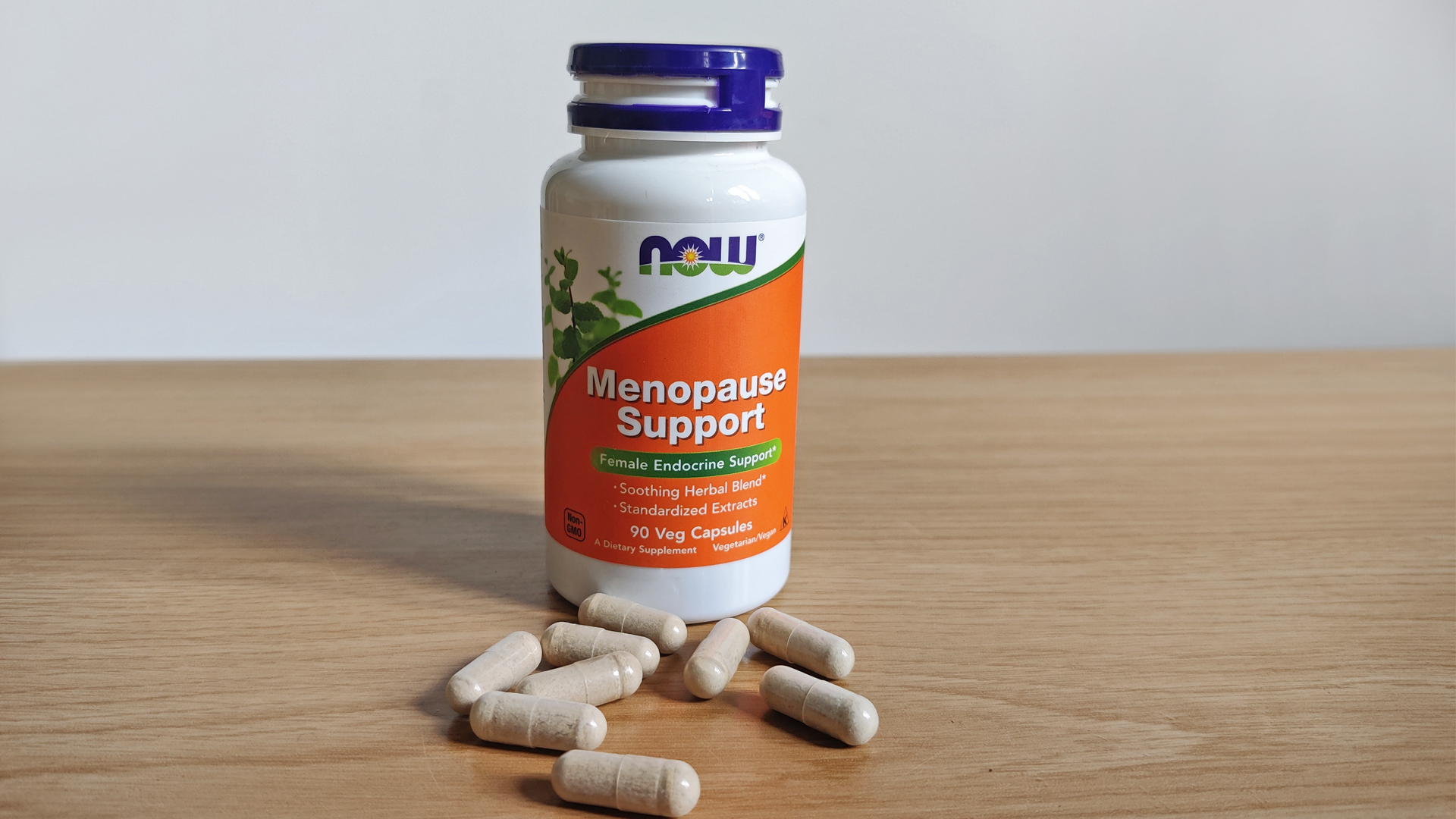
3. Now Menopause Support
Specifications
Reasons to buy
Reasons to avoid
The Now Menopause Support is based on a blend of herbal extracts thought to be beneficial during menopause. One of these is black cohosh, a perennial plant native to North America and traditionally used by Native Americans to help in female health conditions
Research published in the journal Menopause suggests that it may play a role in managing hot flushes, night sweats, and mood changes. It also contains red clover, licorice, ginger, and soy isoflavone — the latter are plant compounds that mimic the effects of estrogen.
Now Menopause Support is also non-GMO (not genetically modified), Kosher, gluten-free and vegan. Since this is a herbal blend, it’s safe to take it alongside a multivitamin.
However, as black cohosh may have hormone-like actions, this isn’t one to take if you’re on HRT or other hormonal treatments, or if you may be pregnant. While this is one of the most affordable menopause supplements on the market, 90 capsules will only last you a month, so it may be worth stocking up on a few containers.
The capsules themselves have a faint 'herbal' smell about them, but the coated outer layer masks any unusual taste and they are easy to swallow.
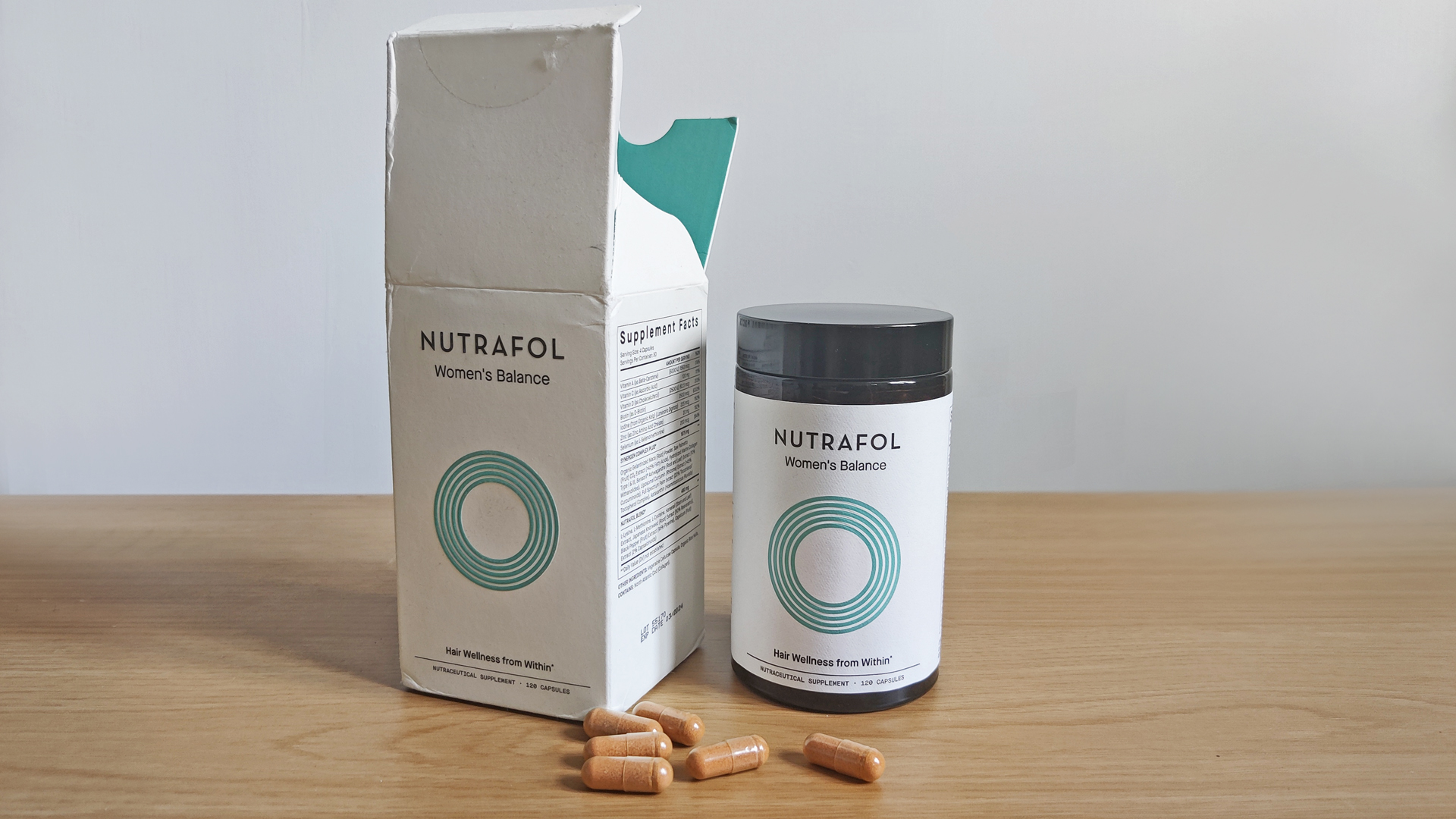
4. Nutrafol Women's Balance
Specifications
Reasons to buy
Reasons to avoid
Hair loss is one of the lesser-known symptoms of menopause, but one that can cause frustration and anxiety for many women. As menopause begins, estrogen and progesterone decline rapidly.
Testosterone also declines, but at a much slower rate. This can result in ‘testosterone dominance’ and overall hair thinning, receding hairline, and unwanted facial hair growth.
Nutrafol’s Women’s Balance is designed for women before, during, and after menopause and claims to use medical-grade, natural ingredients that target the root causes of thinning, such as hormones, aging, and metabolism.
Potential benefits may include visibly thicker volume, less shedding, and hair that grows faster and longer. As well as targeting hair loss, it also claims to improve sleep and mitigate hot flashes.
According to the manufacturers, however, you can expect to see results within three to six months, so if you’re looking for immediate relief from menopausal symptoms, this probably isn’t the product for you.
One key benefit of Nutrafol, however, is that it’s safe to take alongside hormone replacement therapy, with the manufacturers reporting no known interactions with estrogen, progesterone, or testosterone replacement therapy.
The Nutrafol Women's Balance comes in a sleek, black glass jar and feels like a premium supplement. The capsules are on the larger side, but they are coated which we found makes them easier to swallow.
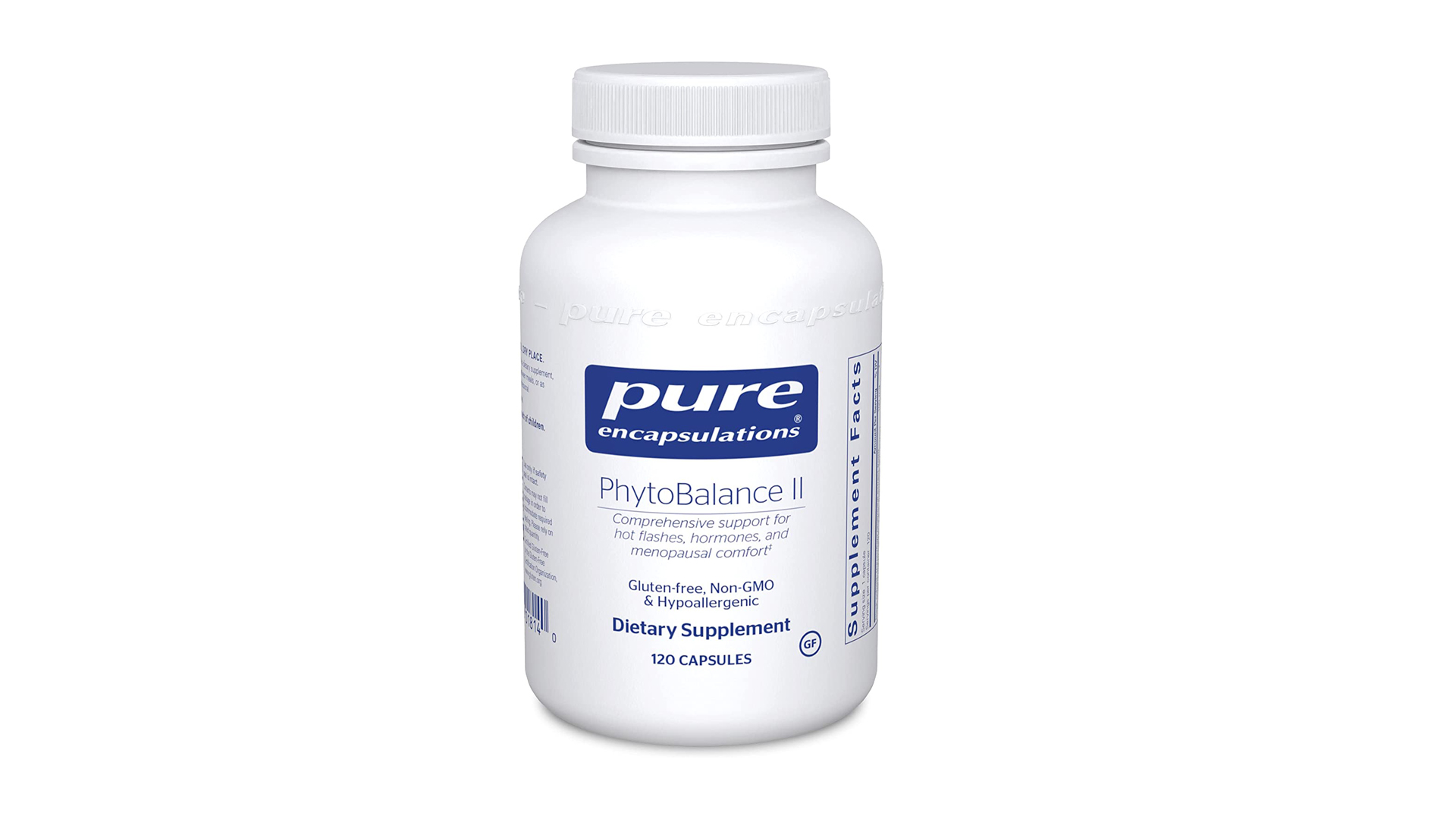
5. Pure Encapsulations Phytobalance
Specifications
Reasons to buy
Reasons to avoid
Hot flushes are probably one of the most well-known menopause symptoms, and can range from an occasional sensation of a slight temperature increase, to leaving you dripping in sweat.
It’s not known exactly why hot flushes occur, but it’s thought that a drop in reproductive hormones can affect the hypothalamus – an area of the brain that acts as the body’s thermostat.
One of the best ways you can support hot flushes naturally is to consider phytoestrogens – these are plant compounds that can help to address hormone imbalances.
These Pure Encapsulations Phytobalance capsules from the well-respected supplement brand, claim to naturally promote healthy estrogen-like activity and may reduce hot flashes.
Each capsule contains extracts of black cohosh, sage, licorice, motherwort, chaste tree, and grape, medicinal herbs that have been linked with a reduction in menopause symptoms.
How to choose the best menopause supplements for you
Price is an essential factor when choosing the best menopause supplements since you don't want to break the bank to manage your symptoms, but there's more to consider before you decide.
Alternatively, the form a supplement takes might decide for you. Whether you prefer a capsule, a pill, or a powder supplement, we've considered many different options in our guide to help you choose.
It's also worth considering whether the menopause supplement is vegan-friendly, as some use animal-derived sources of B12, which aren't appropriate if you follow a plant-based diet.
You may also find that your body needs some extra support in other areas. As your body changes, so do your nutritional needs, which is why many people start taking the best vitamins for women over 50 to pick up where your diet leaves off.
How we test the best menopause supplements
As the effects of a supplement will depend on your body's needs, we've tested the experience of taking the menopause capsules instead. We check the ingredients to see if they're well-known for menopause symptoms and whether they're vegan-friendly.
We also take each supplement ourselves to see how easy the capsule or pill is to swallow and if it leaves an unpleasant aftertaste or repeats on us. Finally, we combine all of this to assess whether the supplement is good value for money.
FAQs
What are the signs of menopause?
Menopause officially occurs 12 months after the last period. However, the menopause transition, known as perimenopause, occurs when the cycle begins to slow down and the body prepares for menopause.
This period can begin up to 10 years before menopause -- usually between the ages of 45 and 55. In other words, menopause symptoms can affect women for over a decade in some cases.
Wondering if you're experiencing the first signs of perimenopause? Here are some of the signs to look out for.
- Irregular periods
- Vaginal dryness
- Hot flushes
- Night sweats
- Sleep disruption
- Mood swings
What do menopause vitamins do?
Put simply, menopause vitamins can help you supplement your body with all the nutrients it needs but is no longer getting.
As women and people who menstruate age, the natural process of menopause will mean their bodies will produce fewer hormones, like estrogen and progesterone.
As we’ve seen, this change in hormone levels can result in a wide range of symptoms, such as hot flashes, mood swings, low libido, and even memory loss. But that’s where the best menopause vitamins come in.
As Grace Derocha, RDN, CDCES, MBA, registered dietitian and national spokesperson for the Academy of Nutrition and Dietetics explains:
“Menopause vitamins or menopause supplements claim to help one manage the symptoms that one might have when they are going through menopause, such as hot flashes, difficulty sleeping, mood changes, vaginal dryness, loss of bone density, increased cholesterol levels and more.”
According to Derocha, some vitamins and minerals that may help during menopause include:
- Calcium – to help keep bones dense to help fight osteoporosis
- Vitamin D – is essential for bone health and with menopause getting osteoporosis is more prevalent
- Vitamin E – is an antioxidant and can help fight free radicals in the body like from heart disease and general aging
- Vitamin Bs – can help with overall heart health, cognitive function, energy, and B9 may potentially help with hot flashes.
- Black Cohosh and Flax Seed – may help with hot flashes
However, as Derocha tells us, it’s important to note that not every woman will experience menopause symptoms in the same way.
“Some may have more severe symptoms, while others may feel very minor symptoms,” she says. This is why it’s best to consult with your health care professional before taking any supplements to make sure you are filling your body with the vitamins and minerals it’s missing.
Grace Derocha is registered dietitian nutritionist and the national spokesperson for the Academy of Nutrition and Dietetics. She is a health coach at Marquee Health and a certified diabetes educator St. John Children’s Center in Detroit.
Do menopause supplements really work?
We spoke to Dr. Alexandra Phelan, a GP and Medical Director at PrivateDoc, who warned about some of the risks of menopause supplements.
The challenge with supplements is that they are often not tested for a specific purpose. As such, any evidence supporting them is generally anecdotal and therefore not always applicable to each individual woman, Phelan explained.
"Unfortunately, many of these dietary supplements can interfere with prescription medication and potentially cause unwanted side effects. For example, Red Clover may interfere with additional hormone treatment and other medications to thin the blood."
In the case of St. John's Wort, this can interfere with other treatments commonly prescribed to help with anxiety or depression (such as Fluoxetine, Citalopram, and Sertraline)," says Phelan.
"For me, the most important vitamin in peri and postmenopausal women is Vitamin D. Known as the sunshine vitamin; it is produced naturally in the body when skin is exposed to the sun," explains Dr. Charlotte Gribbin, who works for the Harley Street Clinic Dr. David Jack.
"Most of us spend winter wrapped up and summer covered in sunscreen, which means that vitamin D deficiency is more common than we realize. As estrogen declines, there can be an impact on bone density."
"Vitamin D supplementation (in deficient women) has been shown to support bone health. Some studies even suggest that it positively affects mood and emotional stability," Dr Gribbin said.

Dr. Alexandra Phelan is General Practitioner (GP) for the National Health Service (NHS) in the UK and the Medical Director at the digital healthcare platform PrivateDoc.
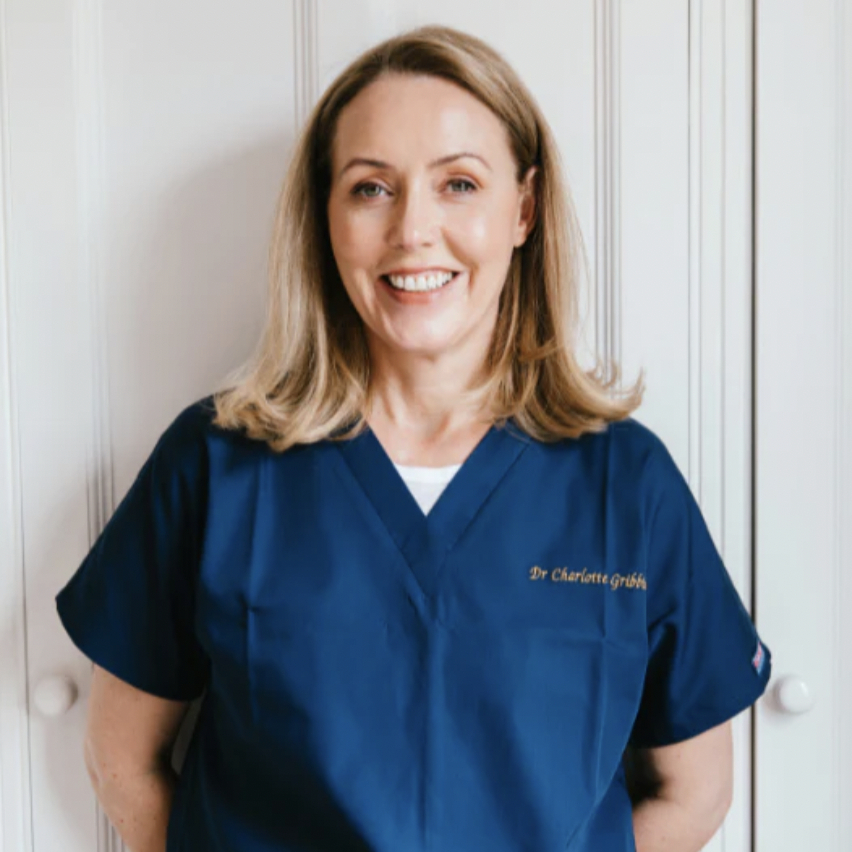
Dr. Charlotte Gribbin is an Aesthetic Physician with a master's degree in Aesthetic Medicine from Queen Mary University of London. She is also a practitioner at the Dr. David Jack Harley Street skin health clinic.
Get the Fit&Well Newsletter
Start your week with achievable workout ideas, health tips and wellbeing advice in your inbox.

Alice Ball is the Health Editor for Future Plc. With more than five years of experience working in health journalism, she's covered everything from why we should 'kill' the calorie, to destigmatizing the menopause. Alice also specializes in nutrition and supplements. She's a self-confessed running fanatic, currently in training for her fifth marathon. She enjoys documenting her progress on her Instagram account, @aligoesrunning. Alice works across a number of Future's sites, including LiveScience and Fit&Well.
- Lou MudgeFitness Writer
-
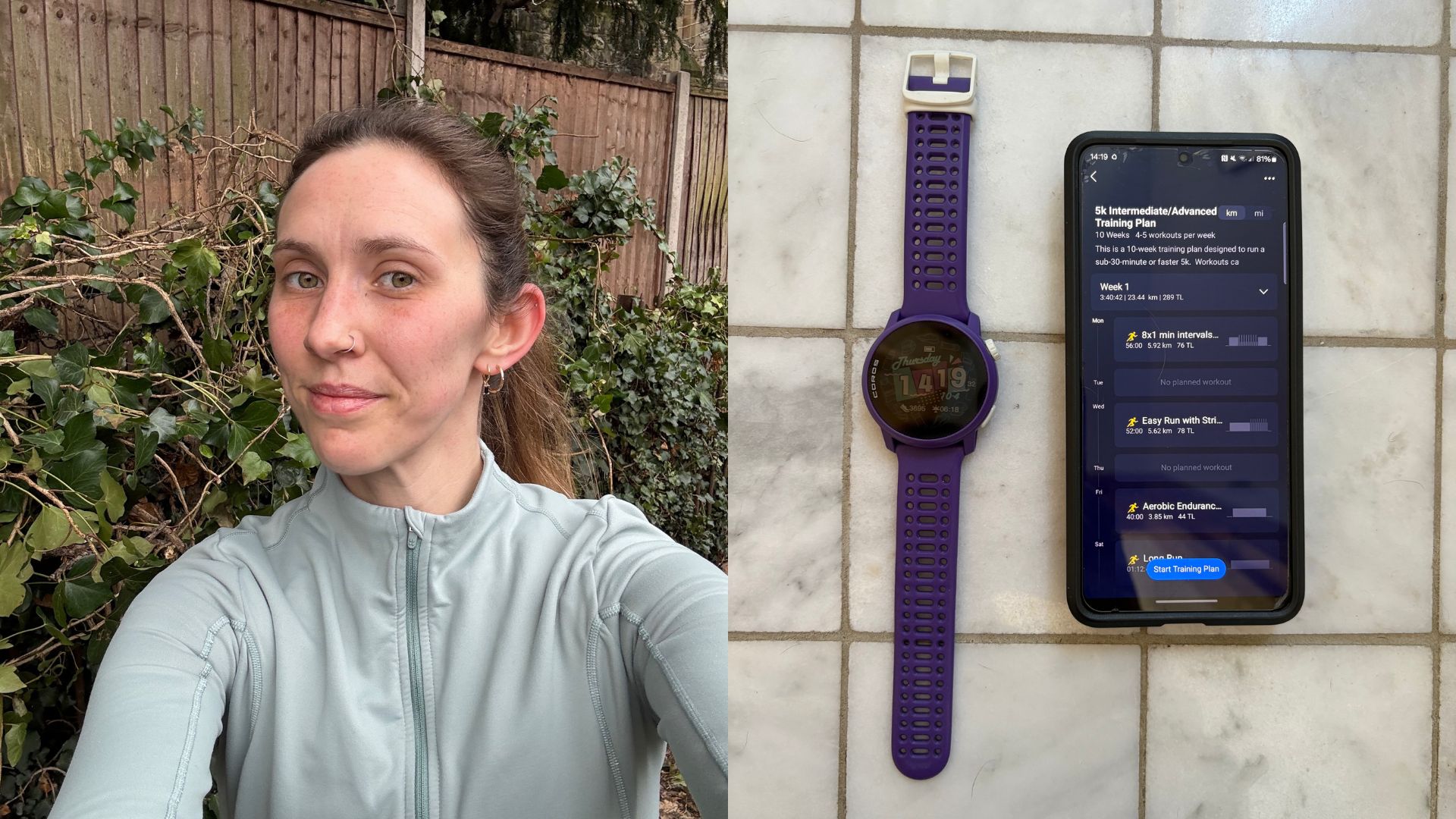 This is the exact running plan I followed for two months to finally get my 5K run time under 30 minutes
This is the exact running plan I followed for two months to finally get my 5K run time under 30 minutesAnd it helped me fall in love with running again
By Ruth Gaukrodger Published
-
 I increased my step count back to 10,000 a day after time off—here’s how I did it sustainably
I increased my step count back to 10,000 a day after time off—here’s how I did it sustainablyIt took me five weeks to get back to the ideal range
By Lou Mudge Published